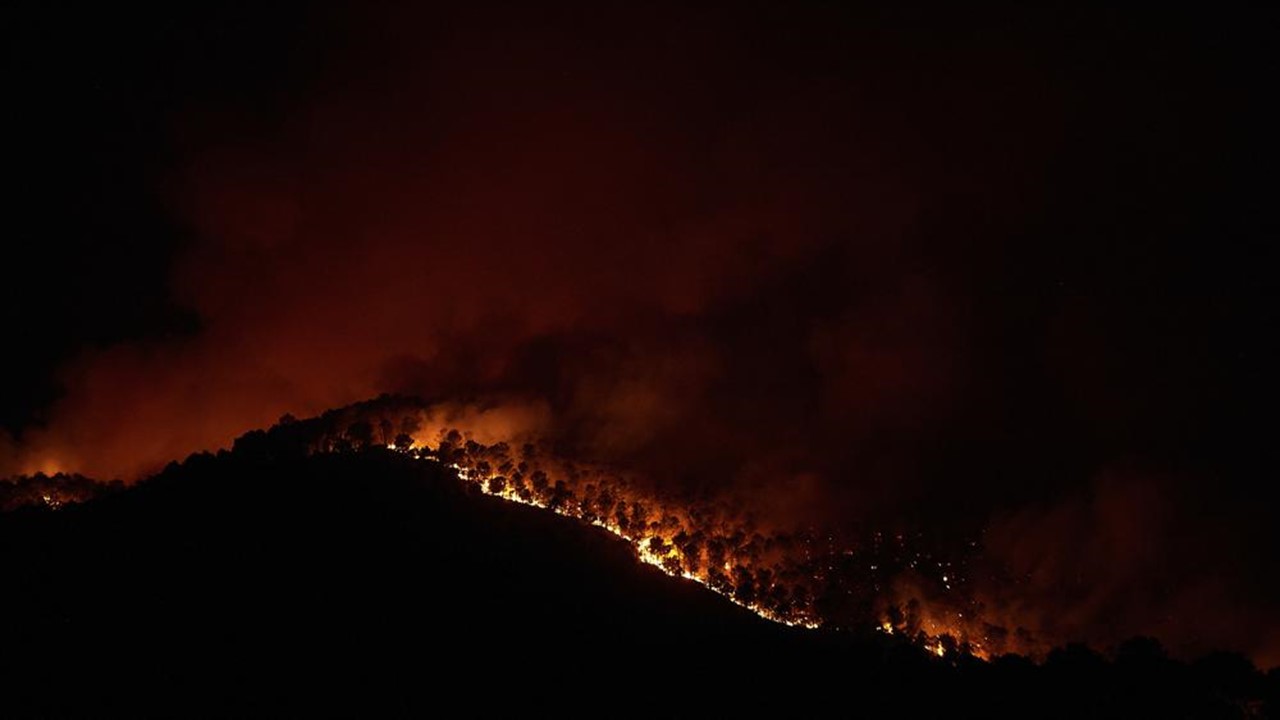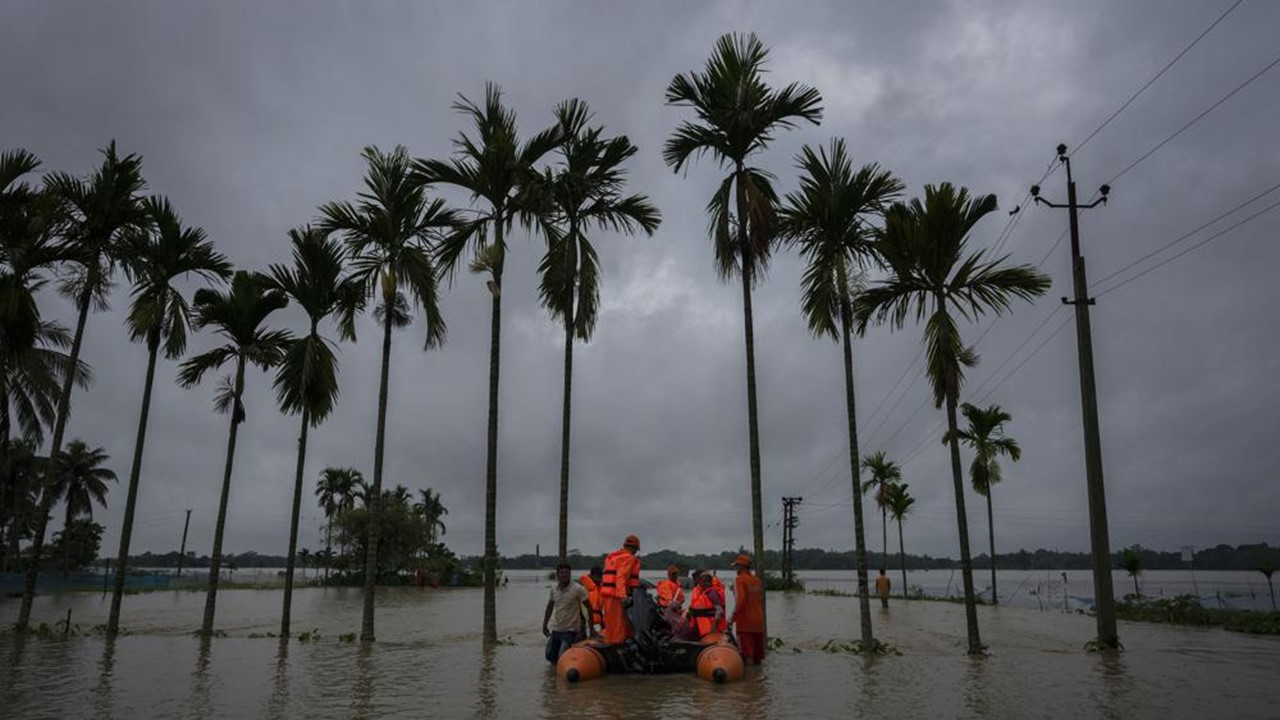Barcelona/Dhaka - Firefighters in Spain and Germany struggled to contain wildfires on Sunday amid an unusual heat wave in Western Europe for this time of year as authorities in India and Bangladesh struggled Monday to deliver food and drinking water to hundreds of thousands of people evacuated from their homes in days of flooding that have submerged wide swaths of the countries.
An intense and unprecedented early heatwave is baking western Europe, with temperatures in many places topping 40°C on Saturday. Areas across western and southern Europe are already rationing water amid the sweltering heat, with a very dry spring putting immense stress on water systems.
In Spain wildfires in the northwest province of Zamora, have consumed over 30,000 hectares (74,000 acres) of land, regional authorities said, while German officials said that residents of three villages near Berlin were ordered to leave their homes because of an approaching wildfire Sunday.
 Trees burn as flames and smoke engulf the top of a hill in a forest fire in Artazu, northern Spain in the early hours of Sunday, AP Photo
Trees burn as flames and smoke engulf the top of a hill in a forest fire in Artazu, northern Spain in the early hours of Sunday, AP Photo
Germany has also seen numerous wildfires in recent days following a period of intense heat and little rain. The country’s national weather agency said the mercury reached 39.2 C (102.6 F) in the eastern cities of Dresden and Cottbus on Sunday.
Strong winds have been fanning a blaze near the town of Treuenbrietzen, about 50 kilometers (31 miles) southwest of Berlin, prompting officials to order three villages evacuated Sunday.
In northern Italy, several towns have announced water rationing and the northern Lombardy region has hinted at declaring a state of emergency as a record drought threatens harvests.
Scientists have said the multiplication of heatwaves in Europe is a direct consequence of global warming, with the World Meteorological Organisation warning this is only a "foretaste of the future".
“As a result of climate change, heatwaves are starting earlier,” said Clare Nullis, a spokeswoman for the World Meteorological Organisation in Geneva.
“What we’re witnessing today is unfortunately a foretaste of the future," she added.
Flooding ravages Assam and Bangladesh
Flooding ravaged India’s northeastern Assam state, where two policemen involved in rescue operations were washed away by floodwaters on Sunday, state officials said. They said about 200,000 people were taking shelter in 700 relief camps. Water in all major rivers in the state was above danger levels.
In Sylhet in eastern Bangladesh along the Surma River, villagers waded through streets flooded up to their knees.
 The floods triggered by monsoon rains caused the Brahmaputra River to break its banks, leaving millions of homes underwater and severing transport links.
The floods triggered by monsoon rains caused the Brahmaputra River to break its banks, leaving millions of homes underwater and severing transport links.
The Brahmaputra flows from Tibet through India and into Bangladesh, with a nearly 800-kilometer (500-mile) journey through Assam.
Scientists say flooding in Bangladesh has been worsened by climate change. According to the United Nations’ Intergovernmental Panel on Climate Change, about 17% of the population will need to be relocated over the next decade or so if global warming persists at the present rate.
The Yellowstone region in US faced its worst floods in a century. The event was triggered after a winter with light snow, finally accumulating a couple of months ago, fluctuating between wet and cold conditions, likely thanks to the natural weather event La Nina, build the snowpack in the mountains to above normal levels.
The upheaval followed one of the region's wettest springs in many years and coincided with a sudden spike in summer temperatures that has hastened runoff of melting snow in the park's higher elevations from late-winter storms.
-Euro/AP